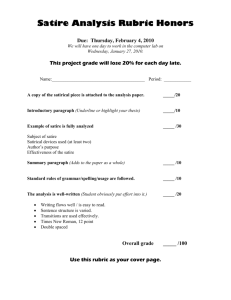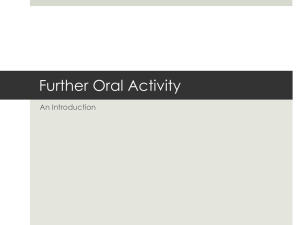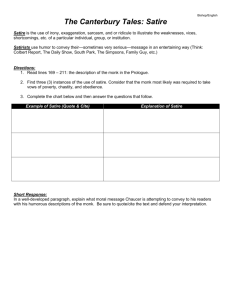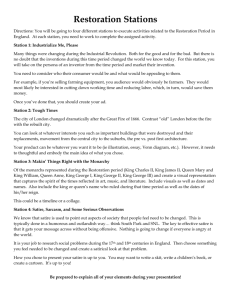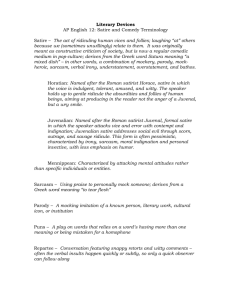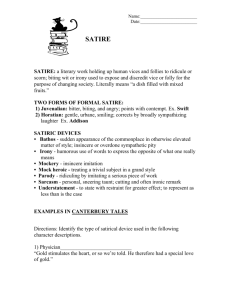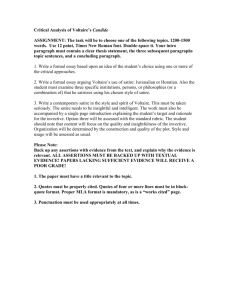Rhetorical Terms Review #4 Notes
advertisement
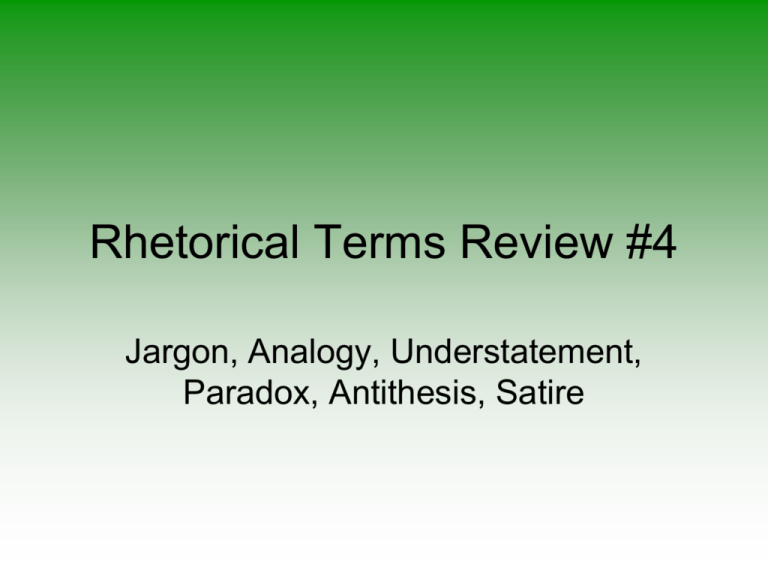
Rhetorical Terms Review #4 Jargon, Analogy, Understatement, Paradox, Antithesis, Satire Jargon (Diction) • DEF: Specialized/idiomatic diction endemic to a group with a particular interest. (ex. Profession or hobby) • Characterized by precise and definitions known to the group. • Ex: Military, Science, Education • Slang tends to be informal and inclusive. Analogy (Detail, Structure) • DEF: A comparison between two things: one known and one to be defined. • PURPOSE: The inference that if two similar things are alike in some ways, they will be alike in others. Analogy Examples • Teaching Kids to share • Marathons require incremental training that builds skill and endurance • Boys tend to solve problems with fights • Incentives for charity • Preparing for the AP Test will take all year. • Men in power solve problems with war Understatement (Diction) • DEF: Deliberately expressing an idea as less important than it is. • PURPOSE: Determined by context (think about “Wax Poetic”) Tact and Politeness: - Your uncle’s had a bit to drink. - We’re having a little problem. (As your house floods.) - The recent hurricane has provided us with a few challenges. Understatement Con’t Ironic and Comic Effect: - Stalin killed a few people. - Last week I saw a woman flayed, and you will hardly believe how much it altered her person for the worse. -- Jonathan Swift Antithesis (syntax) • Presentation of Opposites in Parallel Form • United we Stand; divided we fall. • “Freedom is never voluntarily given by the oppressor; it must be demanded by the oppressed.” -MLK Paradox • A statement that seems contradictory on the surface but reveals a deeper truth. • “If we want peace, we must prepare for war.” • “When the white man turns tyrant, it is his own freedom he destroys.” - Orwell • “…an individual who breaks an unjust law…is in reality expressing the highest respect for the law.” - MLK Satire (TonePurpose) • DEF: a style of writing that ridicules human vice or weakness • PURPOSE: to correct or criticize the subject of the satire. (often persuasive in aim) Satire usually takes something well-known and draws absurd parallels or conclusions to show flaws. Satire can use many tactics including, wax poetic, understatement, and mock-serious/heroic. Irony is frequently present. Satire Examples • Headlines from The Onion “Teen Lands Job With Fortune 500 Company” “Majority Of Americans Never Use Physical Education After High School”
